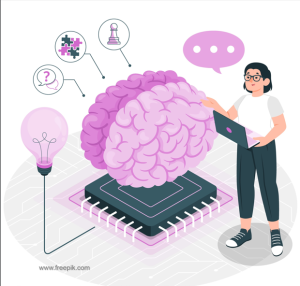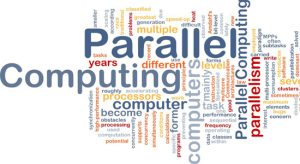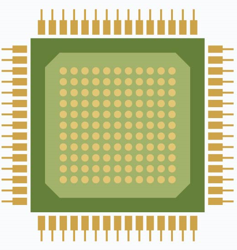The Medical Image Processing Research Center (MIPRG) was established in 2013 under the visionary leadership of Dr. Hammad Omer, a Tenured Associate Professor at the Department of Electrical and Computer Engineering, COMSATS University Islamabad. The primary aim of MIPRG is to spearhead impactful research endeavors that address both national and global challenges within the realm of Medical Imaging, with a specific emphasis on Magnetic Resonance Imaging (MRI).
Fields of Research
Reducing MRI Scan Time
MRI is a powerful diagnostic tool, but long scan times, often lasting 15 minutes to over an hour, can cause patient discomfort and reduce the efficiency of MRI machines. Reducing scan time improves patient comfort, alleviates anxiety, and increases throughput, allowing more patients to be treated in less time. Innovative methods, such as advanced imaging sequences, parallel imaging, and compressed sensing, help speed up data acquisition without sacrificing image quality. AI and machine learning are also being used to correct motion artifacts and optimize scans. Ongoing advancements in hardware, software, and protocol optimization continue to improve MRI efficiency and reduce scan times.
Prolonged MRI scan times lead to patient discomfort, limited throughput, and increased healthcare costs, driving the need for innovative solutions to reduce scan durations without compromising image quality.
Deep Learning in MRI Image Reconstruction
MRI is a key diagnostic tool but is often hindered by time-consuming imaging methods that require extensive data acquisition and post-processing. This leads to issues like motion artifacts, discomfort for patients, and increased healthcare costs. To combat these challenges, deep learning techniques have emerged to accelerate MRI image reconstruction while preserving diagnostic quality. By using neural networks, deep learning can reconstruct high-quality images from significantly fewer measurements, which is especially beneficial for dynamic imaging scenarios. These techniques also help correct motion artifacts and enhance image resolution through super-resolution methods. However, successful implementation relies on large, diverse datasets for effective model training. Overall, deep learning is reshaping MRI reconstruction, promising faster scan times and improved patient care through collaboration among AI researchers and clinicians.
Read More
Traditional MRI imaging methods are time-consuming and prone to issues like motion artifacts and patient discomfort, necessitating the use of deep learning techniques to accelerate image reconstruction without sacrificing diagnostic quality.
GPU-Based Parallel MRI Reconstruction
MRI is essential for medical diagnostics, but its lengthy data acquisition and image reconstruction can hinder clinical workflows. To overcome this challenge, researchers are using Graphics Processing Units (GPUs) to accelerate MRI image reconstruction through parallel computing techniques. GPUs excel at performing multiple calculations simultaneously, drastically reducing reconstruction times from hours to minutes or seconds. This speed is particularly valuable in dynamic imaging scenarios like real-time cardiac imaging, improving diagnostic accuracy and facilitating quicker decision-making. Additionally, GPUs enable the use of advanced reconstruction algorithms that require significant computation time. However, successful implementation necessitates collaboration between MRI researchers, radiologists, and computational experts. Overall, GPU-based parallel MRI reconstruction revolutionizes medical imaging by enhancing efficiency and expanding the possibilities for advanced techniques.
The lengthy process of MRI data acquisition and image reconstruction poses significant challenges in clinical workflows, highlighting the need for GPU-based parallel computing techniques to accelerate MRI image reconstruction while maintaining diagnostic quality.
ASIC Design for MRI Algorithms
Advancements in hardware and software are crucial for improving diagnostic accuracy in medical imaging, particularly in MRI. Application-Specific Integrated Circuits (ASICs) have emerged as a transformative technology that accelerates and optimizes MRI algorithms for image acquisition and reconstruction. Custom-designed for specific functions, ASICs significantly enhance processing speed and efficiency, enabling real-time imaging in complex scenarios like cardiac or functional MRI. They also improve power efficiency, reducing operational costs and promoting environmentally friendly practices. Collaboration between algorithm developers and hardware engineers is essential for optimizing algorithms for ASICs, leading to innovative techniques and enhanced image quality. Despite the challenges in ASIC design, the integration of ASIC technology in MRI heralds a new era of improved efficiency, speed, and diagnostic precision in medical imaging.
The computational demands and time constraints associated with traditional MRI algorithms hinder real-time imaging capabilities, necessitating the development and integration of Application-Specific Integrated Circuits (ASICs) to optimize MRI algorithms for enhanced speed and efficiency.




